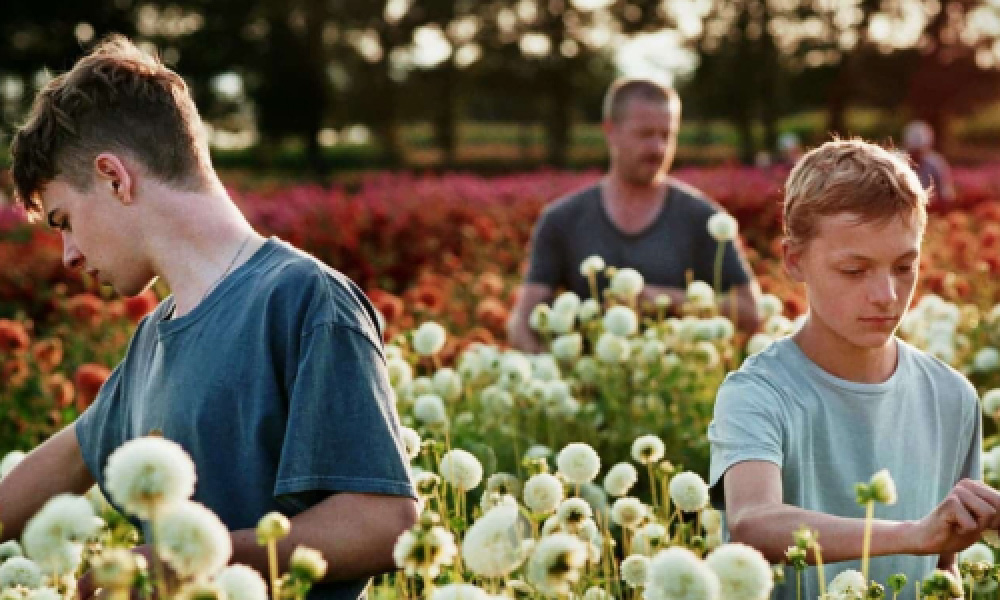There is a dearth of films about what it means to lose a friendship. With a close friend at most mature stages of life, there is a sense of vibrant chemistry (if usually not intimacy), and also the feeling your bond with that person somehow defines who you are. Dan Sallitt’s under-seen Fourteen—about a friendship between two millennial women which commenced at that mid-adolescent age—has been one of the only recent films to broach this topic, and its slow-motion accretion of detail could be a lesson towards the subject of this very review.
Lukas Dhont’s Close, following up Girl from 2017, admirably attempts to delve into a friendship like this, with sensitivity and a rare gift of observation. Where it falters is an attempt to stir and batter the viewer with melodramatic plot turns and operatic emotion. This approach will likely please more of its audiences to come than others, but Dhont here arguably becomes so carried away with the emotional tempest he has an undoubted gift to conjure that the arc of the film feels artificial, somewhat tidy. Contending for the Palme d’Or at Cannes, Close, following on from the notion of “Oscar bait,” is Palme-bait: a well-crafted tearjerker of a manipulative kind that believes the best way to move an audience is by prodding them. (It eventually won the Grand Prix, the putative runner-up award.) There’s even a precedent amongst previous Palme winners with Nanni Moretti’s superior The Son’s Room, which follows a similar plot trajectory.
Close’s best and most nuanced work takes place in its first act. Dhont alights us on the dual protagonists Léo (Eden Dambrine) and Remi (Gustav De Waele), played by two film-acting first-timers on the cusp of adolescence who give rich performances. In a sedate, unspecified part of Belgium, the two kids meet on the flower field that their respective families use to harvest. Playing, biking, and sleepovers are all the rage, Léo especially enchanted with Remi’s precocious skill on the oboe. But when Léo wakes up one morning to find Remi innocently embracing him in his makeshift side-bed, he is subjected to confusion for which even the enlightened, PSHE-style education he likely received couldn’t prepare him.
They are lucky enough to be beginning the new term at the same secondary school, although the new social pressures of this environment will initiate the friendship’s downfall. More than Remi expressing his intimate, pre- or proto-sexual feelings of intimacy towards Léo, it is the sense of conformity enforced by this new environment that is the straw breaking the camel’s back. First their inseparability leads the new classmates to accuse––in their tone––them of being “boyfriends.” Then there’s an even more subtle shift: the active, sporty activities Léo starts to enjoy creates a distance between the boys. This a film that young people of the cast’s age will likely respond to and find cathartic as well, but the adults viewing will feel like parents or guardians observing at the sidelines, picking up on so many more telling details that Léo and Remi don’t have the capacity to process yet.
Then, at the tipping point of the film’s back half, a significant plot development occurs, turning it into something far less suggestive and realistic. It essentially sacrifices the point-of-view of one character, making the other a simple locus for our pity. And in invoking the topic of suicide and child mortality, Dhont makes this outcome far more inexplicable and less considered and worked-through than what he says about discovering one’s early queer feelings. Embracing Close will depend on how willing you are to forgive the filmmaker for overriding some nuances he’s established, compared to the insightful things he’s able to say when not aiming to emotionally provoke us.
Close premiered at the Cannes Film Festival.

